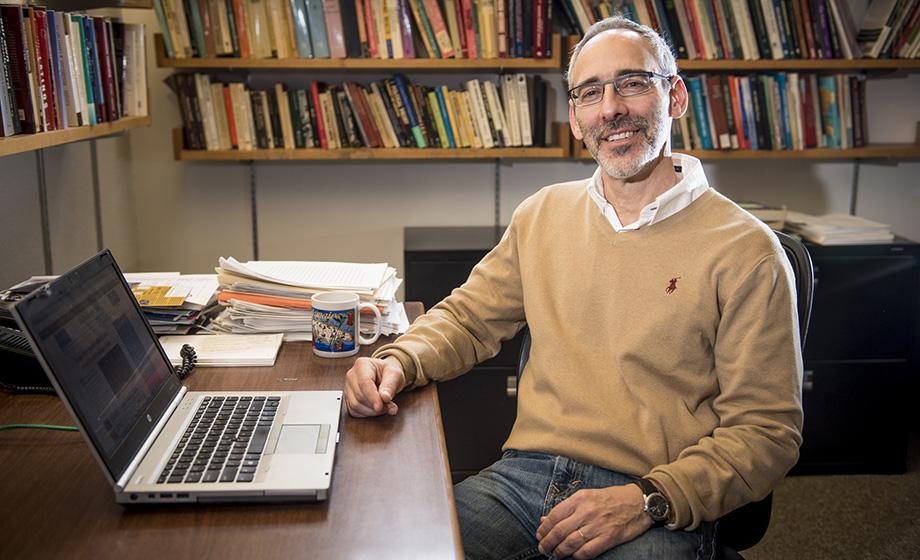
Clark University faculty, students and staff are invited to an open house hosted by the new Center for Race, Gender and Area Studies (CGRAS) on Wednesday, January 25, from 4-5:30 p.m. The center is located in Suite 1 on the first floor of Dana Commons. Light refreshments will be served.
CGRAS, which took up residence in Dana Commons in late August 2016, serves as a dedicated space for seven related interdisciplinary undergraduate programs, all but two of which had no on-campus space of their own: the concentrations in Africana, Holocaust and Genocide, Latin American and Latino, Peace, and Comparative Race and Ethnic Studies; and the majors/minors in Asian and Women’s and Gender Studies. (The Holocaust and Genocide concentration continues to make its primary home at the Strassler Center for Holocaust and Genocide Studies, located in the Cohen-Lasry House on Hawthorne Street, and the Women’s and Gender Studies major has relocated from Jefferson Academic Center to Dana Commons.)
The center’s goal is to provide a place where students and faculty interested in these interdisciplinary concentrations and majors, and the ways they intersect, can exchange ideas face to face, whether by meeting formally in an office, attending an event or just hanging out in the Dana Commons’ Fireside Lounge.At a time when it’s almost as easy to talk to someone on the opposite side of the world as the opposite side of the room, it can be easy to forget the benefits of more personal contact. Nothing quite beats meeting face to face when discussing issues and concerns of deep importance. And while most academic departments at Clark have locations on campus that allow their students and faculty to mingle, interdisciplinary programs that draw on professors from multiple departments often don’t have that luxury.

associate professor
of English
According to inaugural director Paul Posner, who also serves as director for the concentration in Latin American and Latino studies, just discussing the possibility of such a center brought together faculty with interests in these fields. He says that ideas for the center had been percolating among faculty and students for several years, spearheaded by English professor Betsy Huang, who from 2013 to 2016 served as Clark’s first director of the Office of Diversity and Inclusion.
“Being in the same place at the same time changes the dynamic,” he says. “Many faculty noticed this was the first time we had worked together, even though we shared a lot of interests. In the process of trying to create CGRAS we were already experiencing what we had hoped to cultivate.”
Esther Jones, associate professor of English and director of the Africana Studies concentration, agrees. “I’m very excited about CGRAS because I think there’s a lot of potential for cross-fertilization and communication of ideas, for teaching and for creating communal space for thinking. You need space to come together, to share ideas.”

associate professor
of English
According to Jones, the thread that is common to these programs is the interrelationship between identity — whether based on race, gender or a geographical location — and power.
“CGRAS is the home for thinking about power, identity and politics, in a nutshell,” she says. “For each of these concentration and majors, the study of power is going to be a central question.”
Jones sees the inclusion of the Africana and Women’s and Gender Studies programs in the mix as critical, because African Americans and women confronted issues of identity and power early on in U.S. history. Their struggles gave rise to some of the first academic disciplines to focus on these questions, disciplines that now provide intellectual frameworks for newer areas of study that engage with similar issues.
Clark is not the first university to host a center like CGRAS, but according to Posner, Clark’s approach is somewhat different. While some centers focus on curricula, others emphasize social programming. “We’re trying to do both,” he says. “I think that makes us a little distinctive. And I think we encompass more academic programs.” Posner notes that the process of birthing the center also spurred the development of one new program, the concentration in Africana Studies, and the revival of another that had been in decline—the concentration in Race and Ethnic Relations, now renamed Comparative Race and Ethnic Studies.
Since September, CGRAS has sponsored or co-sponsored a variety of lectures, workshops and film screenings, with more on the calendar planned for the spring semester. CGRAS will host its official launch event in March with Phi Beta Kappa Visiting Scholar Jennifer Hochshild, the Henry LaBarre Jayne Professor of Government and Professor of African American Studies at Harvard University. CGRAS was instrumental in planning Clark’s January 20, 2017 MLK Racial Justice Teach-In, in partnership with the offices of Diversity and Inclusion and Multicultural and First Generation Student Support. For information about upcoming events, please email Tyra Lewis, the center’s administrative coordinator.


